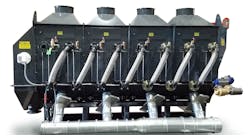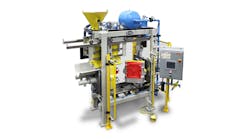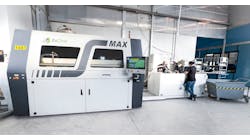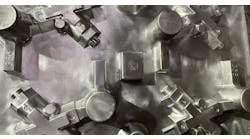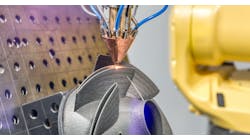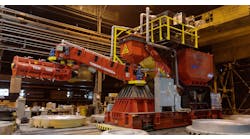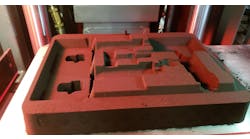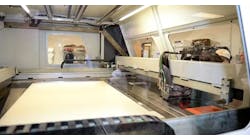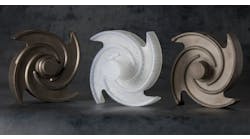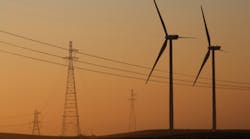Vestas Wind Systems A/S — a Denmark-based manufacturer, seller, installer, and servicer of wind turbines, agreed to sell four foundries and two machining operations in Europe and China to an industrial group for €1.00 (est. $1.35) — plus the right to claim up to €25 million (est. $34.2 million) in future earnings, depending on the plants’ performance.
The sale agreement remains subject to regulatory approval in China.
The aluminum and ductile iron foundries are located in Guldsmedshyttan, Sweden; Kristiansand, Norway; Magdeburg, Germany; and Xuzhou, China. The machining operations are in Lem, Denmark, and Tianjin, China. The parts produced and processed by these plants include footings, rotor hubs, bearing housings, and other components of wind turbines rated from 660 kW to 8.0 MW.
About 1,000 workers are employed are at the six plants. Vestas recently said it would close a nacelle plant in Taranto, Italy, but it has reconsidered and will not sell a wind tower plant in Pueblo, Colorado.
“The divestment of our machining and casting units is part of the plan to improve our capacity utilization and to become a more asset-light and scalable company,” stated Jean-Marc Lechêne, executive vice president and chief operating officer of Vestas Wind Systems A/S.
The buyer is VTC Partners GmbH, an industrial holding company based in Munich, Germany, and it will continue to supply the relevant castings to Vestas for its turbine production. Both the buyer and the seller predicted that higher utilization rates under VTC ownership would lead to long-term cost benefits.
Buyer Sees "Compelling Advantages"
VTC is the owner of Silbitz Group, which owns three iron and steel foundries that supply structural castings for various markets (e.g., drive and motor technology, wind energy systems, power engines, mechanical engineering and railway technology.)
The plants are Silbitz Guss GmbH, in Silbitz, Germany; Zeitzer Guss GmbH (formerly Zemag GmbH), in Zeitz, Germany;Eurocast Košice s.r.o., in Košice, Slovakia. The Silbitz Group also includes Crossener Modell- und Formenbau, a specialty patternmaking and prototyping operation in Crossen, near Silbitz.
“This transaction offers compelling advantages for both parties involved and VTC plans to invest significantly in the strategic realignment of the group,” stated Dr. Thomas Robl, managing director of VTC Partners GmbH. “Vestas will receive its components at the same high quality level it is used to, and at the same time it will benefit from VTC’s scale and efficiency in the casting business. Together with our subsidiary the Silbitz Group we are forming a leader in global castings, leveraging our large casting capacity and state-of-the-art machining facilities.”
Vestas, which had been negotiating to sell the operations for about 21 months in order to reverse sustained operating losses, also plans to write off approximately €50 million (est. $68.4 million) in the sale.
However, Vestas estimated it may save €30 million (est. $41 million) over two years in supply costs for cast and machine parts used to build wind turbines.
“In outsourcing our machining and casting units, it was important to take the time to find the right partner in order for both parties to benefit from the industrial synergies,” Lechênecontinued. “VTC will continue to operate with the same high Vestas standards in relation to quality, reliability and safety, and I am pleased to say that we consider VTC to be the right partner in all these aspects.”
